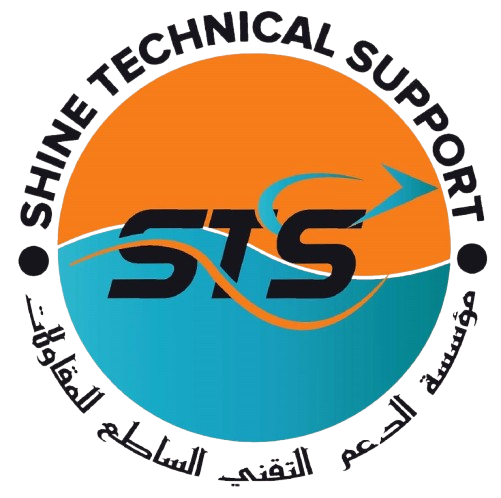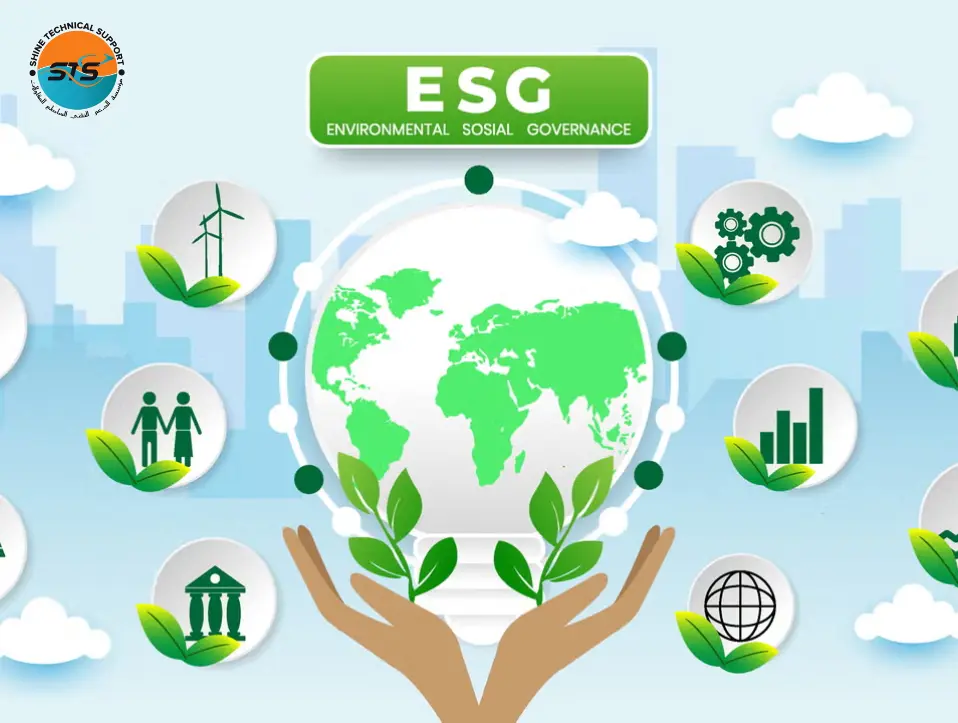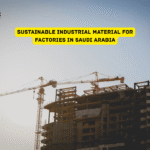In an era defined by sustainability, climate consciousness and corporate accountability, the concept of Environmental, Social and Governance (ESG) has moved from optional to essential for companies across the globe. For STS GCC, operating in the industrial materials sector in Saudi Arabia, that evolution represents not only a regulatory and reputational imperative, but a strategic opportunity to lead.
Saudi Arabia’s industrial landscape is undergoing a deep transformation with focus on decarbonization, circular economy and local content-driven growth that aligns with Saudi Vision 2030. As an industrial material service provider based in Al Jubail, Dammam and across the Kingdom, STS GCC has committed to embed environmental responsibility, social value and governance best practices at the heart of its operations.
This article explores how STS GCC is implementing its ESG strategy, the drivers behind it, the concrete initiatives underway, how it is measuring performance, and why this matters for customers, stakeholders and the future of Saudi Arabia’s industrial economy.
What is ESG
The term “ESG” refers to the criteria by which companies evaluate their performance in matters of environment (E), social responsibility (S) and governance (G). These dimensions are increasingly material in industrial supply chains, covering emissions, waste management, worker safety, community impact and transparency in governance.
In Saudi Arabia, the industrial sector is making substantial strides. A recent report noted that Saudi businesses are “increasingly embracing environmental, social and governance principles to drive sustainable growth” in alignment with Vision 2030 and the nation’s Net-Zero by 2060 ambition. Moreover, listed Saudi companies are beginning to present robust ESG disclosure with one study finding only a handful fully reporting on greenhouse-gas emissions, toxic wastes and human capital attributes.
For a supplier like STS GCC, operating in key industrial hubs such as Al Jubail and Dammam and servicing oil & gas, petrochemicals, construction, power and manufacturing sectors, the business case for strong ESG performance is clear: risk reduction, client trust, regulatory compliance and alignment with strategic national goals.
Framework & Pillars of STS GCC ESG Commitment
STS GCC has structured its ESG strategy around three core pillars:
- Environmental Stewardship
- Social Impact & Community Engagement
- Governance, Transparency and Ethical Supply Chain
Each pillar supports clear objectives, measurable KPIs and continuous improvement processes to ensure the company is aligning with leading sustainability practices and the Kingdom’s industrial transformation goals.
1. Environmental Stewardship
Under the environmental pillar, STS GCC focuses on several strategic areas:
Material Sourcing & Supply Chain Efficiency
STS GCC works with globally recognised manufacturers that meet international standards for sourcing, material quality and environmental performance. By choosing suppliers with lower-emission production processes, recycled content and efficient logistics, STS GCC helps reduce the upstream environmental footprint.
Energy & Emissions Management
In its warehouses, transport operations and logistics hubs serving Al Jubail, Dammam and other regions, STS GCC has instituted energy-efficiency measures: LED lighting, optimized HVAC systems, route planning to minimise transport emissions, and monitoring of fuel consumption.
This aligns with national trends: Saudi firms are increasingly deploying digital tools to track, reduce and report carbon emissions.
Waste Reduction & Circular Economy
Industrial materials often generate waste at end-of-life or through packaging, scrap, and unused inventory. STS GCC integrates initiatives to repurpose scrap steel, recycle packaging, and partner with downstream recyclers where possible. This contributes to the circular economy agenda, which is gaining momentum in Saudi Arabia.
Water & Resource Conservation
Although many industrial material suppliers have limited direct water-intensive processes, STS GCC ensures that partners and internal operations adopt water-efficient practices, especially relevant in the Kingdom’s arid environment. Resource conservation is a key feature of sustainable operations.
Climate Risk & Resilience
With global climate trends affecting supply-chains (e.g., extreme heat, logistic disruptions), STS GCC incorporates climate-risk assessments into procurement and logistics planning. By building resilience and flexibility into its operations, the company helps safeguard clients against supply disruptions.
2. Social Impact & Community Engagement
The social pillar of STS GCC’s ESG strategy emphasises people workers, communities and stakeholders across the value chain.
Health, Safety & Well-being
In the industrial materials business, safety is paramount. STS GCC ensures that its workforce, contractors, and delivery teams follow strict safety protocols, receive ongoing training, and operate in environments compliant with international health & safety standards. These efforts reduce workplace incidents and build trust with clients operating in high-risk sectors like oil and petrochemicals.
Local Content & Workforce Development
Working in Saudi Arabia’s Eastern Province (Al Jubail, Dammam) STS GCC supports local talent development by creating training programmes, employing Saudi nationals and promoting up-skilling initiatives. This aligns with national objectives of job creation and capacity building under Vision 2030.
Community Engagement & Social Value
Beyond internal operations, STS GCC engages with local communities through outreach, sponsoring training workshops for local technical schools, encouraging supplier diversity (including SME-owned vendors), and participating in local sustainability initiatives. Social responsibility and community impact are becoming expected by stakeholders and investors alike.
Inclusive Procurement & Supply-Chain Equity
STS GCC supplier-onboarding criteria include assessment of social practices—such as labour standards, human rights, and diversity. Ensuring suppliers meet ethical and social standards is part of the broader commitment to responsible sourcing.
3. Governance, Transparency & Ethical Supply Chain
The governance pillar underpins the entire ESG strategy,it is what ensures accountability, credibility, and sustainable performance.
Ethical Business Practices
STS GCC adheres to principles of integrity, anti-corruption, fair procurement and ethical vendor selection. Transparent pricing, contract terms and supplier relationships build stakeholder confidence and reduce reputational risk.
ESG Reporting & Disclosure
To meet investor, client and regulatory expectations, STS GCC plans to publish ESG-aligned disclosures. While many Saudi companies are only now ramping up full ESG reporting—the likes of SABIC have begun leading with 76% score in ESG disclosures. STS GCC is positioning itself to align with best-practice frameworks such as GRI (Global Reporting Initiative) or SASB (Sustainability Accounting Standards Board).
Supply-Chain Traceability & Risk Management
With an extensive industrial-material supply chain, STS GCC incorporates supplier audits, material certification, and traceability mechanisms to ensure the goods delivered meet performance, safety and sustainability standards. Governance in sourcing helps mitigate risks like modern-slavery, conflict minerals and un-verified environmental credentials.
Stakeholder Engagement & Governance Structure
Meaningful ESG performance requires stakeholder input, employees, clients, suppliers, regulators and communities. STS GCC has structured governance mechanisms (such as ESG committees, internal audits and board oversight) to monitor progress, escalate issues and embed continuous improvement.
How STS GCC Operationalizes ESG – Key Initiatives
Turning strategy into action is where impact happens. Below are several concrete initiatives STS GCC is deploying to integrate its ESG commitments into day-to-day operations.
Green Logistics and Fleet Optimisation
STS GCC has implemented route-planning software to reduce fuel consumption and emissions in delivery vehicles serving industrial hubs in Al Jubail and Dammam. Warehousing sites are gradually transitioning to solar-assisted power or more efficient lighting and insulation systems.
Supplier Sustainability Assessment Programme
All strategic suppliers are evaluated on environmental credentials (e.g., emissions, waste-management), social practices (labour standards, local employment) and governance (certification, ethical practices). Suppliers not meeting thresholds are supported for improvement or phased out—ensuring STS GCC’s supply-chain remains robust and responsible.
Material Recycling and Waste Minimisation Strategy
Within STS GCC steel, pipe and valve material flows, scrap metal is separated, bundled and recycled. Packaging is reduced or switched to reusable / recyclable formats. Inventory management practices aim to reduce over-stocking and subsequent waste. These efforts help lower landfill impact and support circular-economy goals.
Energy Efficiency Retrofits and Renewable Integration
Warehouse lights, HVAC systems and facility insulation are upgraded for energy efficiency. Solar panels, where feasible, are being evaluated. Monitoring tools track kWh consumption, emissions equivalent and cost savings over time. These align with national decarbonisation pathways and support industrial clients’ green-supply-chain credentials.
Community Engagement & Technical Training Partnerships
In the Eastern Province, STS GCC collaborates with local technical institutes to provide internships, training modules and career opportunities for Saudi nationals. This strengthens the social pillar, supports workforce development and contributes to local content goals within the industrial sector.
ESG Reporting Dashboard and Transparency Tools
STS GCC is developing an internal ESG-dashboard that tracks key metrics: Scope 1/2 emissions, waste recycled, water consumption, incident-rate of workplace accidents, percentage of local hires, supplier audit completion, and board-level oversight. These are aligned with international reporting frameworks to support transparency and continuous improvement.
Why Choose STS GCC:
In a crowded market of industrial material suppliers, what makes STS GCC stand out is not just product range, not just delivery capability, but the fact that it embeds ESG into its business DNA.
- Proven Sustainability Focus – STS GCC is actively integrating environmental stewardship, social value and governance excellence into its operations.
- Alignment with Client Objectives – Whether it is an oil & gas project in Al Jubail or a construction programme in Dammam, clients need suppliers who support their sustainability objectives; STS GCC delivers this.
- Transparency & Accountability – With metrics, dashboards and planned disclosures, STS GCC commits to being open about progress and challenges.
- Partnership-oriented Approach – STS GCC doesn’t just supply materials, it partners with clients, communities, suppliers and stakeholders to drive sustainable outcomes.
- Future-Focused – With Saudi Arabia’s industrial future and the global shift toward green manufacturing, STS GCC is well-positioned for the coming decade.
Final Thoughts
The era of “business as usual” in industrial supply is over. Stakeholders, whether clients, investors or regulators—expect more: lower carbon footprints, safer workplaces, stronger governance, and meaningful community engagement. For STS GCC, this is not a burden but a strategic advantage.
By embracing environmental responsibility and ESG goals decisively, the company helps support the industrial backbone of Saudi Arabia while delivering value, resilience and trust to its clients.
In Al Jubail, Dammam and across the Kingdom of Saudi Arabia, the industrial future is sustainable, and STS GCC is ready to lead that journey. If you are seeking an industrial materials partner with strong ESG credentials, transparent operations and a forward-looking agenda, you will find it in STS GCC.







